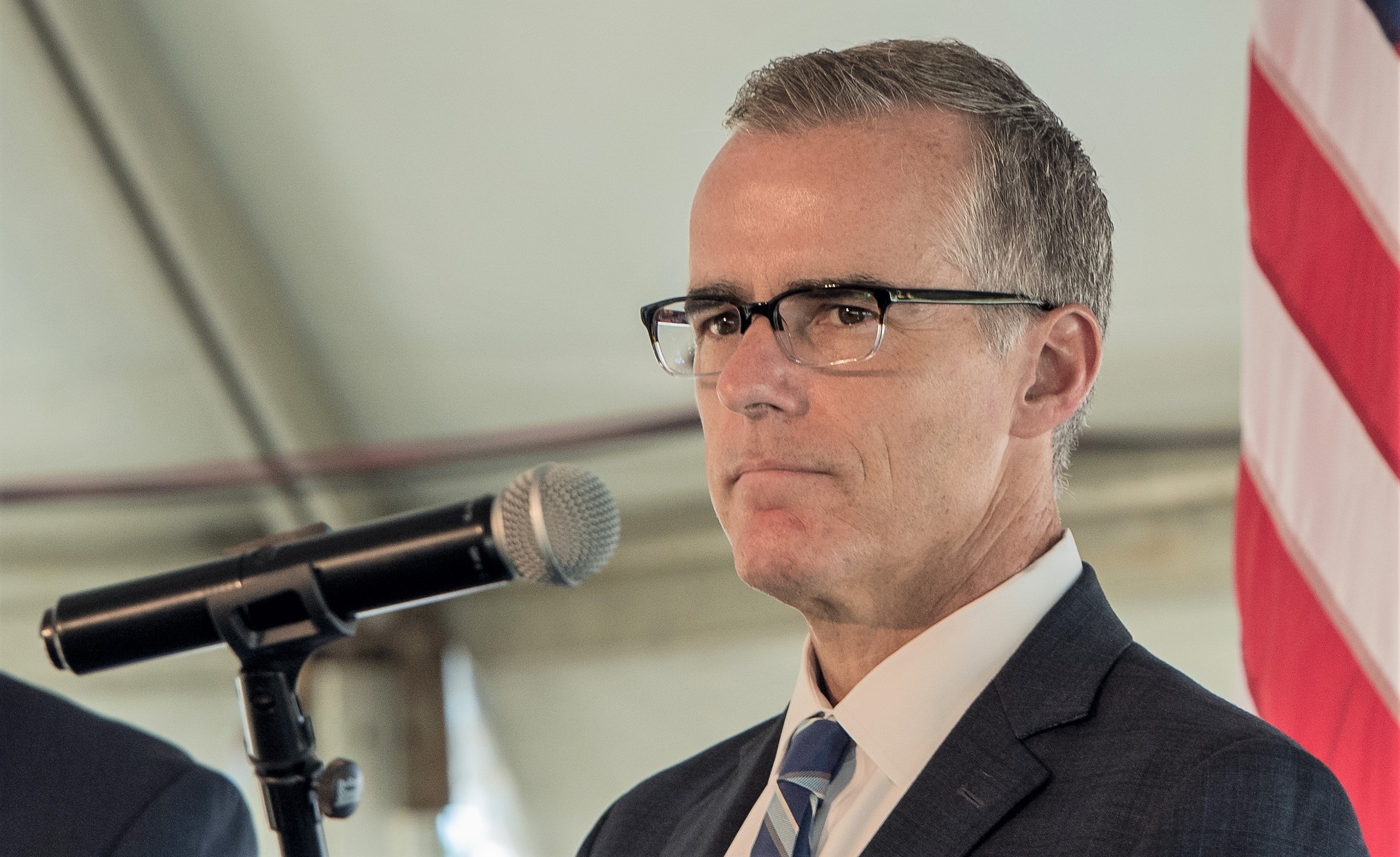–
It’s Friday the 13th. What better day for the Office of the Inspector General (OIG) to drop a bombshell 39-page report which says the former No. 2 law man at the FBI, Andrew McCabe, “lacked candor.” That means he “knowingly provid[ed] false information in a verbal or written statement.” In other words, in non-government-speak, he “lied,” as President Trump was quick to point out:
DOJ just issued the McCabe report – which is a total disaster. He LIED! LIED! LIED! McCabe was totally controlled by Comey – McCabe is Comey!! No collusion, all made up by this den of thieves and lowlifes!
— Donald J. Trump (@realDonaldTrump) April 13, 2018
McCabe, who served as Deputy Director for nearly two years, was fired last month.
Here are five takeaways from the OIG report:
(1) McCabe “lacked candor” about directing a leak to the Wall Street Journal that the Clinton Foundation was under investigation.
The report states that McCabe lacked candor when he told or led then-FBI Director James Comey to believe that he didn’t authorize the disclosure and didn’t know who did. Though the statement or suggestion was not under oath, it still got McCabe in trouble.
The report also said McCabe lacked candor on May 9, 2017, when he was questioned under oath about the leak. During that interview, McCabe again said he didn’t authorize the disclosure and didn’t know who did.
(2) McCabe “lacked candor” on at least four documentable occasions.
The report goes on to count at least four occasions where McCabe was dishonest about whether he played a role in the leak. Besides the two referenced above, one of which was undated, and one of which occurred May 9, 2017, McCabe also “lacked candor” on July 28, 2017, and November 29, 2017.
(3) McCabe put his own interests above that of the FBI.
The OIG determined that McCabe was, indeed, “authorized to disclose the existence of the [Clinton Foundation] Investigation publicly if such a disclosure fell within the ‘public interest’ exception in applicable FBI and DOJ policies generally prohibiting such a disclosure of an ongoing investigation.” However, the way McCabe did it broke the rules: his methods were “designed to advance his personal interests at the expense of Department leadership” and the disclosed information “was clearly not within the public interest exception.”
(4) McCabe broke FBI and Department of Justice policies by leaking the information.
We therefore concluded that McCabe’s disclosure of the existence of an ongoing investigation in this manner violated the FBI’s and the Department’s media policy and constituted misconduct.
(5) After the report, McCabe fought back (through his attorney).
McCabe’s attorney responded to the report by saying that as Deputy Director, McCabe had the power to make statements to the press. The attorney, Michael R. Bromwich, himself a former Inspector General, said McCabe made the disclosures about the Clinton Foundation investigation with Comey’s knowledge in order to protect the FBI’s integrity against claims of political bias. Bromwich also said the investigation was rushed:
The rush to termination was nothing short of extraordinary – a process that normally takes many months, if not longer, was completed in 23 days . . . [t]his timetable precluded counsel from being able to speak to witnesses and develop evidence that refuted the allegations against Mr. McCabe.
Bromwich also says President Trump interfered with the objectivity of Attorney General Jeff Sessions through the application of considerable public pressure. And, as to whether the “lies” were really “lies,” this:
The other allegations of lack of candor against Mr. McCabe – based on statements he made to the FBI’s Inspections Division and the OIG – are more properly understood as the result of misunderstanding, miscommunication, and honest failures of recollection based on the swirl of events around him, statements which he subsequently corrected. Again, Mr. McCabe had no motive to lie or mislead about media contacts he had the authority to direct, nor did he make any effort to coordinate accounts of the events in question with the two other FBI employees with whom he worked on trying to correct a potentially false narrative.
[Editor’s note: This piece has been updated to include additional details from the statement of Bromwich.]
[Image of Andrew McCabe via the FBI.]